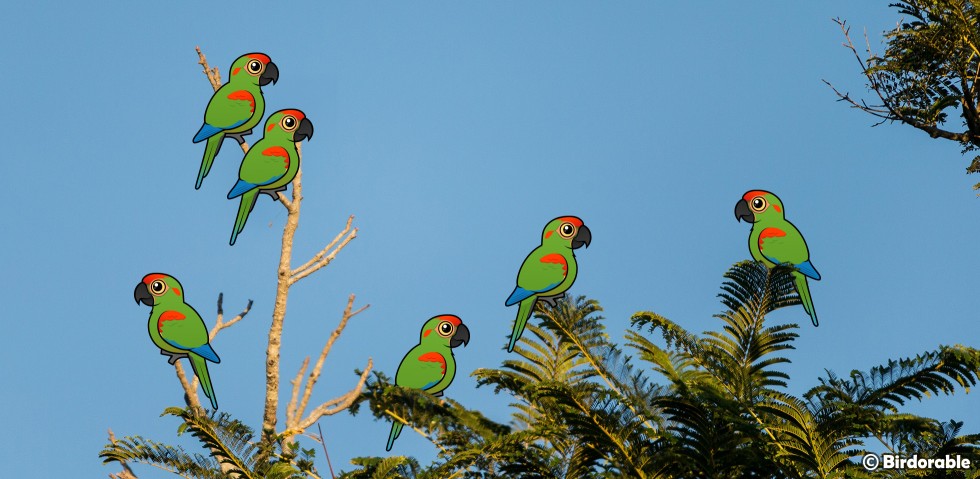Saving the Red-fronted Macaw: Conservation Efforts in Bolivia

The Red-fronted Macaw, a stunning and distinctive bird, holds a unique place in the avian world. Native to a specific semi-desert mountainous area in Bolivia, these macaws carve out their existence between the cities of Santa Cruz and Cochabamba. For a time, their unique features led to speculation that they might be a hybrid of the Blue-and-yellow Macaw and the Military Macaw. However, in the mid-1970s, this theory was dispelled as they were recognized as their own species, highlighting the rich biodiversity found within Bolivia's unique ecosystems.
Despite their beauty and the intrigue they inspire, the Red-fronted Macaws face significant challenges. Their very small natural distribution makes them incredibly vulnerable to changes in their environment. Habitat destruction, driven by human activity such as agriculture and deforestation, has severely impacted their ability to survive. Additionally, the illegal pet trade has further endangered their population, as these colorful macaws are highly sought after.
The situation for the Red-fronted Macaw is dire, with an alarmingly small number remaining in the wild. Conservation efforts are critical to prevent their extinction. Protecting their natural habitat is paramount, as is combating the illegal pet trade. Conservation organizations are working to educate local communities about the importance of these macaws, promoting eco-tourism as a sustainable alternative to parrot poaching, and establishing protected areas to ensure their survival.
Efforts to save the Red-fronted Macaw also include breeding programs aimed at increasing their population numbers. These programs, coupled with research into their behavior, diet, and ecology, are vital for developing effective conservation strategies. Reintroduction into the wild is a complex process but remains a hopeful prospect for the future of the Red-fronted Macaw.
Help Save the Red-fronted Macaw
Supporting bird conservation is a crucial step towards preserving our planet's incredible biodiversity, and one way to make a direct impact is by donating to organizations like Armonía, in partnership with American Bird Conservancy, through their dedicated donation page at https://act.abcbirds.org/a/donate-armonia. Armonía is Bolivia's leading bird conservation group, working tirelessly to protect the most threatened bird species and their habitats throughout the country.
By contributing, you'll be directly supporting conservation projects that not only aim to save endangered birds like the Red-fronted Macaw but also work towards creating sustainable environments that benefit all wildlife and local communities. Donations fuel vital research, conservation actions, and educational programs that empower local communities to join the effort in preserving their natural heritage. Each contribution, big or small, plays a part in the ongoing battle against habitat destruction, climate change, and biodiversity loss.





Comments
Leave a comment
Thank you!